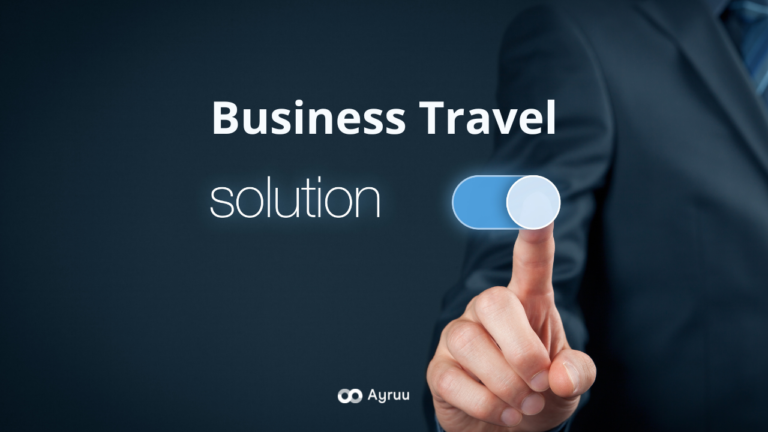AI and the corporate travel industry are joining forces to optimise the user experience for employees on business trips. Indeed, artificial intelligence is improving all the time. As a result, many companies are looking to implement it into their solutions and make life easier for their employees and customers.
How is artificial intelligence changing the corporate travel industry?
1- Optimizing business travel planning
The integration of chatbots and virtual assistants into online booking platforms is the precursor of AI. These chatbots help travellers plan their travel itineraries. They are equipped with natural language processing capabilities, which enable them to understand travellers’ queries and provide personalised responses in real-time.
Take the example of Ayruu’s travel assistant, Mya. When an employee logs into the Ayruu booking application, MyA learns about their preferences, such as desired service choice, proximity to the airport, choice of airline class, etc. By analysing the data and taking into account the employee’s preferences, the MyA travel assistant offers personalised recommendations for flights, hotels and transport services.
2- Simplifying administrative formalities
Artificial intelligence has become a valuable ally in managing administrative procedures related to business travel. With its automation and data processing capabilities, AI simplifies and accelerates administrative processes, providing a smoother experience for business travellers.
From now on, no more time-consuming redundant tasks like expense reports. With applications like Ayruu, complex tasks are not only simplified but also scheduled. This is why outsourcing your business travel management is no longer an option to keep up with the times.
Indeed, business travellers are often faced with the need to carry numerous documents such as passports, visas and boarding passes, among others. AI enables the digitisation of these documents, making them easily accessible and securely stored in dedicated mobile applications. Travellers can easily access their documents from their smartphones, avoiding the risk of losing or misplacing them.
In the travel industry, there are many issues that need to be addressed in the workplace. From booking to cancellation, from expense reports to paperless travel. In other words, AI leads to a reduction in your business travel budget and an increase in the productivity of employees on business trips.
3- Personalise the customer experience while travelling
As a rule, companies that travel generate a significant amount of information about their employees. Indeed, whether it is a small business or a large corporation, large volumes of data are generated. Companies obtain all their travel habits and preferences from their travellers. Moreover, the trend is towards personalisation and Big Data, and the travel tech market is totally concerned.
Innovative players such as Ayruu are reinventing business travel with artificial intelligence. Indeed, its MyA solution allows you to manage and book your business trips with its all-in-one super app dedicated to business travel.
With an app like Ayruu dedicated 100% to business travel, its AI allows companies and suppliers to interact and personalise the experience of its travellers. For example, travellers no longer need to make a note in their schedule or to-do list to manage their reservations. From now on, travellers can receive a notification directly on their smartphone in order to check in on time to get their ticket in the application.
Finally, AI in business travel is all about improving the experience of employees on business trips. But it can go much further….




